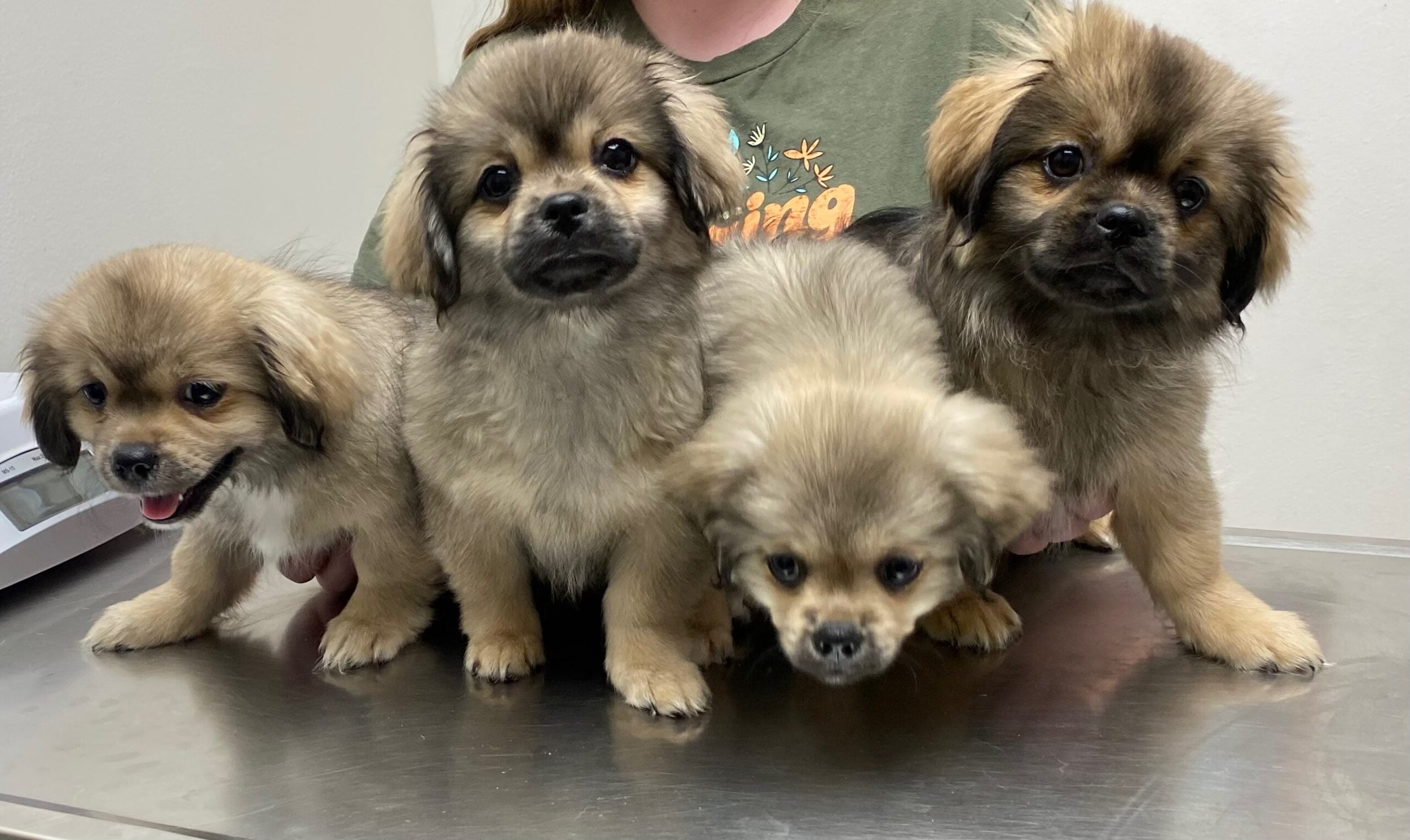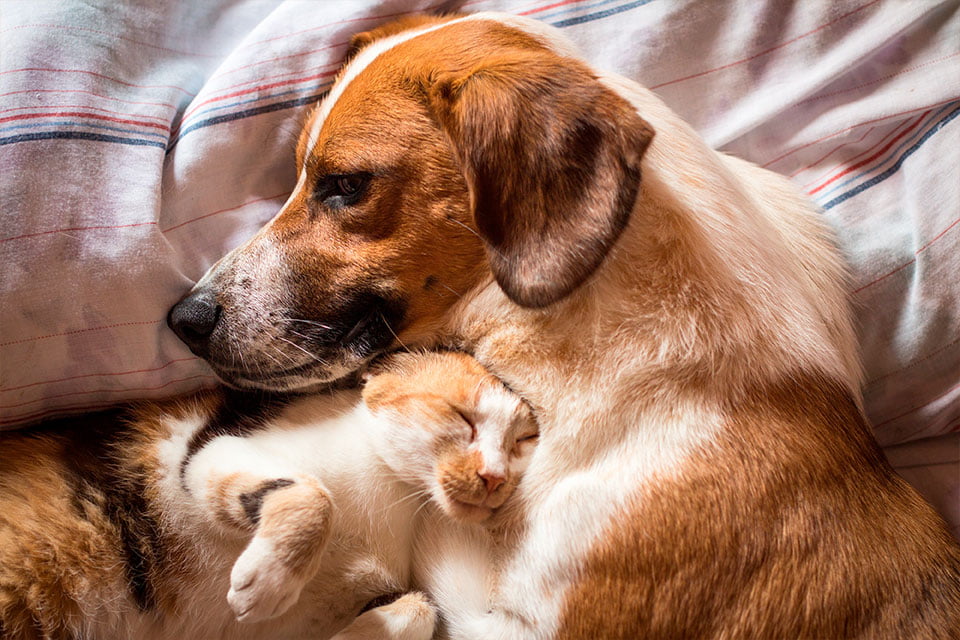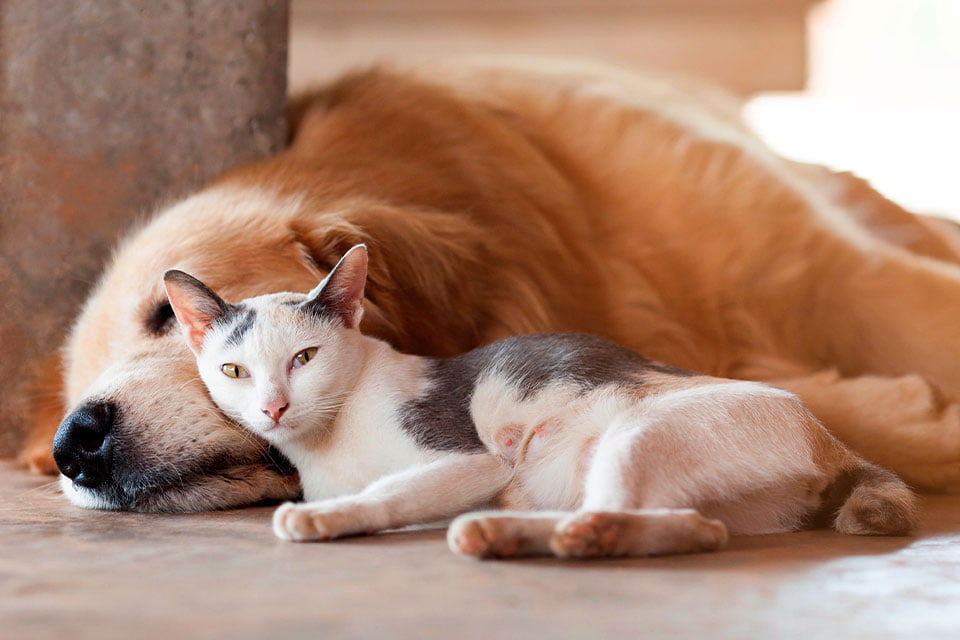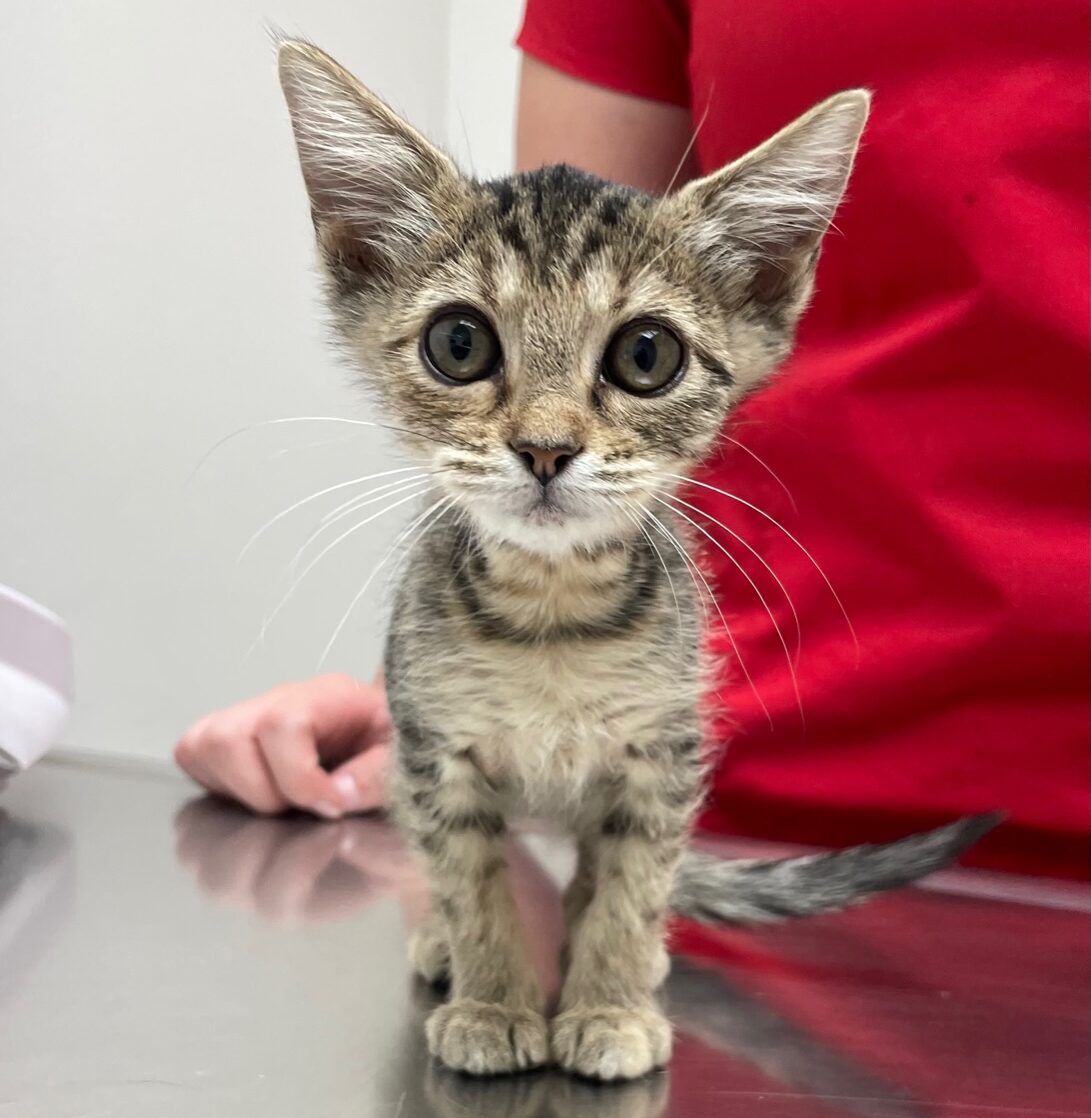
Cat and Dog Vaccinations in San Angelo, TX

Knowing about Vaccines
Immunity can be strengthened through vaccinations to fend off the invasion of pathogenic organisms. However, the immune system is only moderately stimulated when the vaccination is administered to the body.
If a pet ever comes into contact with the actual illness, their immune system will recognize it, eliminate it, or lessen the severity of the disease. In this way, vaccines stimulate the immune system’s defense mechanisms.

Cat and Dog Vaccines
Many diseases affecting pets can be prevented using vaccines. One of the simplest ways to ensure that your pet has a long and healthy life is to vaccinate them. For instance, rabies can kill your dog or cat if not treated immediately.
Parvovirus can also cause severe symptoms, including bloody diarrhea and vomiting. Distemper is another deadly virus that can cause respiratory and neurological complications in dogs.
In cats, the feline distemper vaccine may prevent severe illness. It’s also important to note that certain vaccines may not be suitable for all pets, depending on their age and health status.
Five Good Reasons to Vaccinate Your Pet

There are various reasons to vaccinate your pet, here are a few of them:
- Many pet ailments are prevented by vaccinations.
- Vaccinations can help patients avoid expensive, treatable diseases.
- Vaccines guard against illnesses that can be transmitted between animals and from animals to humans.
- Unvaccinated pets are susceptible to diseases that are common in wildlife, such as rabies and distemper.
- Many municipal or state laws mandate that domestic pets receive specific vaccines.

Does Giving My Pet a Vaccine Carry Any Risks?
Any sort of medical care carries some risk, but the risk should be assessed against the advantages of defending your pet from potentially lethal illnesses. Most animals respond favorably to vaccinations.
Mild and transient adverse reactions after vaccination are the most typical. Serious responses are uncommon. Sarcoma growth, a rare but dangerous adverse reaction, can appear in cats weeks, months, or even years after receiving a vaccination. The prevalence of sarcomas has significantly decreased because of advancements in immunization technology and techniques.
What Immunizations Do Puppies and Kittens Need?
Very young animals are particularly vulnerable to infectious diseases because their immune systems have not fully developed. The antibodies in their mother’s milk provide them with protection, but because their immune systems are still developing and the milk antibodies are depleting, there may be gaps in their defense.
A series of vaccinations are often advised to make sure that the puppy or kitten receives a vaccine as soon as possible. Maternal antibodies can also affect a puppy’s or kitten’s vaccine response.
In many cases, the first vaccine prepares the animal’s immune system to fight the virus or bacteria. Further doses stimulate the immune system to develop critical antibodies required for long-term protection.
What Shots Does My Pet Need to Get?
The majority of pets in a specific region or area should receive “core” vaccinations. Vaccines offer protection against the diseases that are most prevalent there. “Non-core” vaccines are only given to specific animals with particular needs.
To tailor a vaccination regimen for the best protection over the course of your pet’s life, your veterinarian will consider the risk of exposing your pet to disease.
Discuss your pet’s lifestyle with your vet, taking into account any anticipated travel to other areas and any interaction with other pets. These things can affect your pet’s risk of contracting certain diseases.
How Frequently Does My Pet Need Vaccinations?
Some immunizations require more frequent schedules to maintain an acceptable degree of immunity that will continuously protect your pet. Many vaccines offer adequate immunity when given every few years.
What Are Antibody Titers, and Can They Take the Place of Vaccines?
They are blood tests that count the number of antibodies present. Antibody titers may aid your veterinarian in determining if your pet has a reasonable expectation of protection against disease, even though they do not replace vaccination programs.
The development of a pet’s immunization schedule considers a variety of elements. Your pet will benefit from a lifetime of infectious disease protection thanks to a schedule of immunizations and preventative care that your veterinarian will design.
Do Vaccines Have Unintended Consequences?
Following immunization, it is typical for pets to suffer some or all of the moderate side effects listed below. It’s critical for you to get in touch with your veterinarian if these side effects persist for more than a day or two or cause your pet substantial discomfort:
- Pain and localized edema at the injection location
- Sneezing, slight coughing, snotty nose, or other respiratory symptoms may appear two to five days after your pet has an intranasal vaccination.
Within minutes to hours following immunization, more severe but less frequent adverse effects, such as allergic reactions, may manifest. These responses are medical emergencies. Immediately seek veterinary care if any of these symptoms appear:
- Constant diarrhea or vomiting
- Itchy skin that may appear rough (hives)
- Swelling of the face, neck, and eyes
- Severe coughing or difficulty breathing
- Collapse
Firm swelling often occurs at the vaccination point. It ought to start to go away in a few weeks. Contact your veterinarian if it lasts more than three weeks or appears to be getting bigger.
If your pet has ever had an adverse reaction to a vaccine or treatment, always let your veterinarian know. If unsure, wait 30 to 60 minutes after the immunization before bringing your pet home.
What Dangers Come with Immunizing My Pet?
The most frequent side effects from vaccinations are tissue swelling near the injection site, mild symptoms of illness like fever, fatigue, and discomfort, and allergic responses to the vaccine that can be mild or potentially fatal.
Every pet’s reaction may vary, so monitor your pet in the hours and days following a vaccine.
What Factors Decide Which Vaccinations My Pet Needs?
Your vet can help you weigh the pros and cons of vaccinations. In general, your pet’s exposure risk is one factor, and your vet will also consider the following:
- Age: To help puppies and kittens develop disease resistance after antibodies from their mothers wear off, a specialized immunization program is required. Adult pets need booster shots after the initial vaccination series to maintain immunity.
- Geography: Certain geographic regions have increased exposure risks for certain diseases; for instance, Lyme disease is more common in regions with a lot of trees.
- Lifestyle: Cats that live entirely indoors, alone, and without contact with other cats may not require this immunization because their risk of exposure to feline leukemia is low. However, your cat should get vaccinated if it travels outside, stays at a boarding house, or interacts with cats brought into your house.
If you’re looking for a Veterinarian in San Angelo(Link→Homepage), Prickly Pear Veterinary Hospital is a great choice for caring, comprehension protection against common diseases in cats and dogs.

